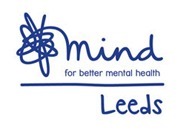Digital Inclusion
The R&R project at Inkwell
Imagine a world without the internet, smart phones or tablets; without social media or search engines. How would it feel? If you’re one of those people who checks their phone within minutes of waking up, looks at Facebook 14 times a day or sits with their laptop reading blog after blog, it might seem like too much of a culture shock to even contemplate a world without digital technology.
However, for millions of people, this is normality. Government statistics show that nearly 6 million adults in the UK have never used the internet, and a further million haven’t used it recently. The gap between users and non-users of the internet and related technology is called the digital divide, and it can lead to significant differences in quality of life.
People with mental health difficulties are one of the groups at risk from being on the wrong side of the digital divide. Research from the Carnegie Trust suggests that households without internet access are more likely to contain people who have below-average mental health and wellbeing, or a long-term illness or disability.
Digital exclusion of this kind can have wide-reaching consequences.This report from the Royal Geographical Society points out that because so much of our world is in the digital realm – accessing services, finding information, connecting with others, being creative – those offline are in danger of becoming more and more socially excluded as well.
Conversely, digital inclusion has measurable positive effects. One example is the work of The Tinder Foundation: the Widening Digital Participation project encouraged disadvantaged communities, including people with mental health difficulties, to increase their use of digital health resources. As a result over 140,000 people learned how to do things such as book GP appointments online or get advice from the NHS website, making their health issues easier to manage.
Being active online can also increase access to entertainment, creative tools, and groups of like-minded individuals. In particular, there are many online communities of people with mental health difficulties who can offer mutual support and understanding, such as Elefriends. Smart phones and tablets enable people to use apps based on their unique interests and needs, some of which are focused on wellbeing – such as mood-trackers – while others offer useful information, welcome distraction or entertainment.
According to this Government report from 2008 into mental health and digital inclusion, affordability of equipment or connection services and lack of perceived skills are factors that can discourage people from going online. While we can’t do much about the price of technology here at Inkwell, we can provide a safe and friendly place for people to learn digital skills.
Recently, we were commissioned by healthcare technology company mHabitat to evaluate the introduction of digital devices on psychiatric wards at Asket House and Asket Croft in Leeds, and to provide six digital sessions to help their service users get to grips with tablets and start using apps to improve their wellbeing. We introduced them to symptom-tracker app uMotif and held a number of sessions to inspire them to use their tablets in creative ways.
The six sessions were led by Inkwell Arts Media, who used their knowledge of digital creativity to make learning useful everyday skills a fun, creative and accessible experience. This included: taking photographs on mobiles and tablets to create a David Hockney-inspired photo montage; an internet-based quiz where the group looked up recipes, found out what’s on in the local area and searched YouTube for music; and one session focused entirely on the animation app Lego Movie Maker and Stop Motion Movie Maker which were used to make a stop-motion film.
Photography using mobile devices
taken at the digital sessions at Inkwell
The service users found the sessions extremely enjoyable, and our creative approach helped to break down barriers faced by people with little or no experience of using digital devices. Many of the sessions focused on the uMotif health app, and by the end of the six weeks, both the service users and Asket House staff could see that a digital tool allowing people to monitor their mood and daily activities (such as sleep, eating habits and exercise) could really help them understand their own wellbeing and mental health.
Our commitment to increasing digital inclusivity doesn’t stop there – on the fourth Wednesday of every month we host the Digital Craft Café, a free drop-in session from 10-3 where staff and volunteers are onhand to provide practical advice on digital matters, from opening a Facebook account to editing photos on a smart phone. Alongside this we put on a different digital-themed informal workshop each month – previous months have included simple stop-motion animation, making rhythms with found sounds and taking professional quality photos of artwork.
To find out more about the Digital Craft Café, or if you know someone who might benefit from being more involved with digital, please visit our website and social media channels (@InkwellArts), or phone us on 0113 3070108. The next session is Wednesday 25th January 2017.
